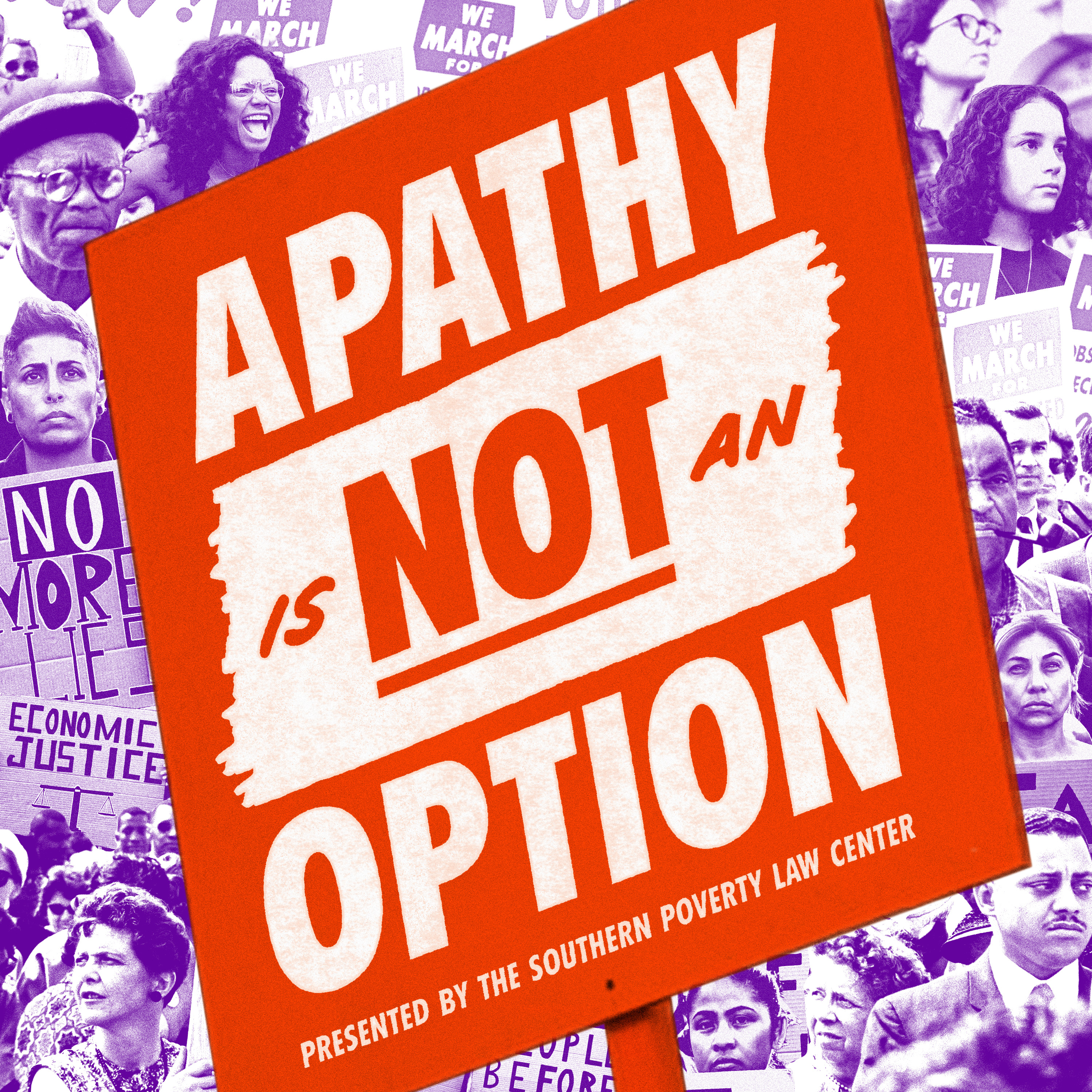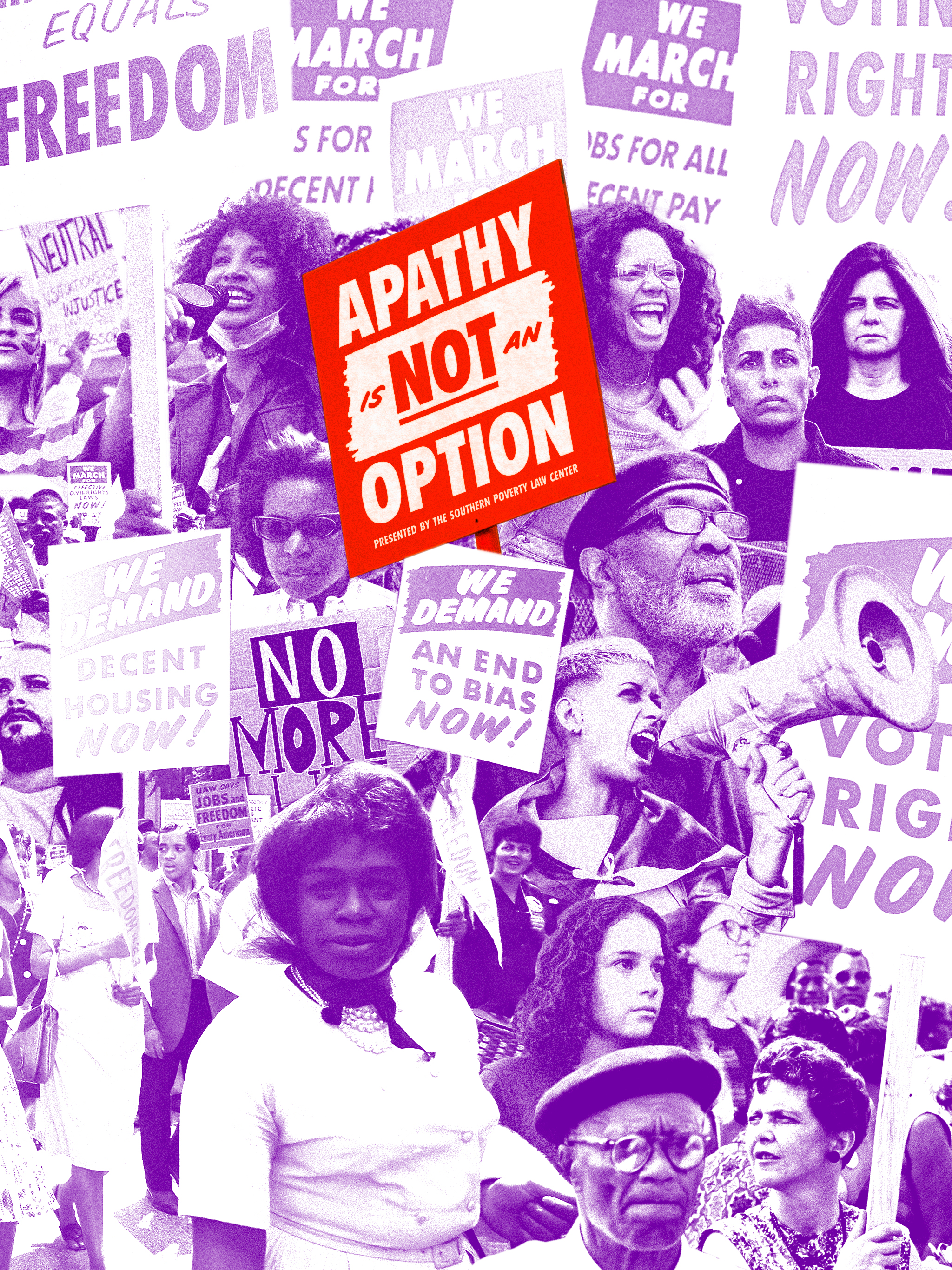
Born from the urgency of the moment, Apathy Is Not an Option lifts the lived experiences of Black and Brown communities in the Deep South, ensuring their leadership shapes the national fight for democracy and justice. The podcast confronts systemic realities of white supremacy, poverty, and disenfranchisement while elevating stories of resistance, resilience, and hope.
Our vision for the podcast is to connect history to today’s struggles, educate listeners, and inspire action, turning awareness into meaningful civic participation and community engagement that strengthens democracy.
Through thoughtfully crafted episodes, we aim to:
Spotlight grassroots transformation happening in communities across the South.
Feature a powerful mix of voices—from thought leaders, activists, and SPLC experts to community members with lived experience.
Drive national awareness of issues rooted in the South that shape the future of democracy and racial justice in the United States.
The SPLC designed Apathy Is Not an Option as both a storytelling vehicle and a tool for action. The strategy centered on three pillars: authenticity, accessibility, and impact.
We began by selecting host Alexandra Beightol, a culture and history content creator with Southern roots and a background in political science. Her ability to bridge scholarly insight with community storytelling helped establish a credible and approachable voice.
From there, a cross-functional team developed a monthly editorial calendar, balancing marquee national guests with deeply local community leaders. Notable participants include Nikole Hannah-Jones, Dr. Ibram X. Kendi, Brittany Packnett Cunningham, Kimberlé Crenshaw, Clint Smith, Jose Antonio Vargas, and SPLC attorneys working directly on landmark cases.
Each episode is intentionally structured to mix three perspectives:
A community member sharing lived experience.
A nationally recognized voice contextualizing the broader stakes.
An SPLC staff expert grounding the issue in law and advocacy.
This design ensures episodes are not only informative but also actionable. We end every show with tangible next steps listeners can take—from signing petitions, to attending local events, to voting and organizing in their communities.
Execution required overcoming challenges: coordinating schedules of high-profile guests, tailoring messaging for younger, digital-native audiences, and balancing heavy subject matter with hopeful, motivating tones. We leveraged multi-channel promotion (YouTube, TikTok, Threads, Instagram, Facebook, LinkedIn), teaser videos, and companion blog posts to extend reach.
The result is a podcast that feels deeply Southern and nationally relevant, with production quality that stands alongside major media outlets while staying grounded in community realities.
Apathy Is Not an Option bridges the gap between lived experience and national debate, transforming abstract issues into urgent human stories that demand action. In the episode “They're Trying To Erase Black History. We're Not Letting Them,” for example, guest Clint Smith powerfully reframed mass incarceration as a continuation of slavery, leaving listeners with a profound sense of urgency and responsibility.
The audience response has been resounding: The podcast holds a 4.7-star rating on Apple Podcasts and a 5-star rating on Spotify. But beyond ratings, the show sparks real-world change. After the episode “40 Acres and a Mule Isn’t a Myth—It’s Royal, Florida’s Legacy” spotlighted Black land retention, signatures on preservation petitions rose noticeably—clear evidence of the podcast’s ability to mobilize communities to defend democracy and justice.
For us, success isn’t measured only in downloads or streams. It’s measured in engagement—listeners who are sharing, signing, and organizing—proving that apathy is not an option.


